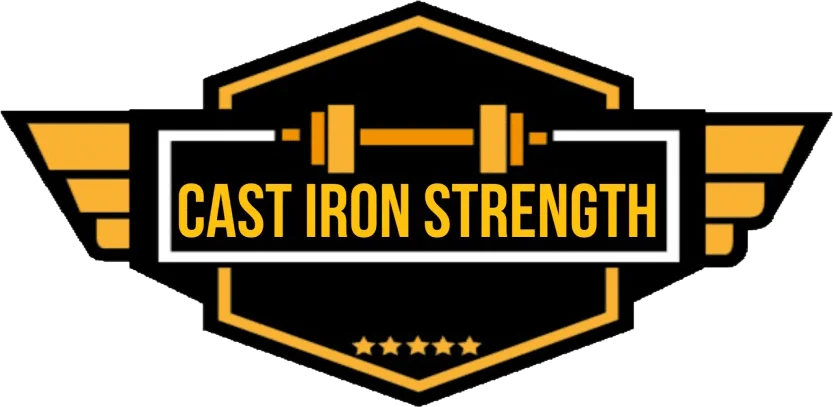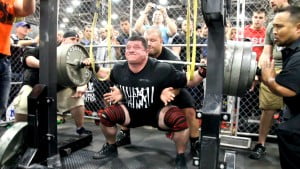TAKE AWAY ITEMS
Never rest on your laurels improve in every aspect of your lifting.
Be exacting on yourself high standards are essential.
Always seek feedback subjective, objective, video, lifting partners and coaches.
Have a plan or plan to fail.
Consult with others and don’t blindly follow a template or “method”.
Always review what you have done and boil it down to the essentials. What worked and what didn’t?
Do more of what works and stop doing what doesn’t.
If you have ever come across the book outlier by Malcom Gladwell you will be more than familiar with the “10,000” hour rule. If you are not familiar with the 10,000 hour rule then you can see a definition of it from the man himself.
There is a lot of confusion about the 10,000 rule that I talk about in Outliers. It doesn’t apply to sports. And practice isn’t a SUFFICIENT condition for success. I could play chess for 100 years and I’ll never be a grandmaster. The point is simply that natural ability requires a huge investment of time in order to be made manifest. Unfortunately, sometimes complex ideas get oversimplified in translation. – Malcom Gladwell 2014 (business insider).
The common understanding or misunderstanding of the 10,000 hour rule comes from the understanding that it takes someone 10,000 hours of practice to go from a beginner to an expert in a certain skill. Where a lot of crossed wires can come from are when people don’t take into account the beginner’s natural talent. Their coach or their environment all of which have huge influences on the outcome or the effectiveness of your practice.
When as a power lifter however have you sat down to think of the applications of something like this in our sport? Where a large body of the articles or literature online advocates squatting 1x per week, benching (maybe) 2x per week and deadlifting once every full moon with a clove of garlic around your neck to avoid CNS failure it can be difficult to envisage how this applies to our sport. After all squatting, bench pressing and deadlifting are more physical displays of capacity and not really sports specific skills that require practice to get better at….? Right….?
Where things get interesting in the practice debate is when we introduce the concept of deliberate practice your see one of the leading figures in the area is a gentleman by the name of K. Anders Ericsson who is one of the worlds leading figures in the psychology of expertise. In one of the latest freakonomics radio episodes on this very concept (link to episode) he discusses the topic of deliberate practice as a juxtaposition to the 10,000 hour “rule”.
The theoretical frame work presented in this article explains expert performance as the end result of individuals’ prolonged efforts to improve performance while negotiating motivational and external constraints. In most domains of expertise, individuals begin in their childhood a regimen of effortful activities (deliberate practice) designed to optimize improvement. Individual differences, even among elite performers, are closely related to assessed amounts of deliberate practice. Many characteristics once believed to reflect innate talent are actually the result of intense practice extended for a minimum of 10years. Analysis of expert performance provides unique evidence on the potential and limits of extreme environmental adaptation and learning. Ericsson et al 1993 (link).
Deliberate practice isn’t merely taing part in the session or task it involves the person actively trying to get better at the task both objectively and subjectively. It involves setting stretch goals in a specific area of the field that the person isn’t already good at and then coming up with a series of tasks or goals that have the end result or aim of helping the person to become better at the aspect of the skill or endeavor they are targeting to improve on. It involves coaching, feedback, analysis of pervious performance and planned accumulative practice over a series of years or decades all of which culminate in the person achieving mastership of the task or endeavor.
Enough science and big words how to I perform deliberate practice for powerlifting?
First of all we need to define how can we get better as a lifter what are the factors that can be affected from training?
- Technique – becoming more efficient in the movement.
- Physical strength – getting stronger.
That about it when it comes to powerlifting sure you can get “faster” with submaximal weights but it’s not really much use to you as a lifter when it comes to 90%+ loads as the strength required is specific to the speeds and forces required at that load.
Affecting technique through practice.
When you go to do a session you should be looking to do the following to try and effect your technical ability and engage in deliberate practice.
- Practice to execute every movement the exact same way be it with the bar or with your 1 rep max you should be looking to execute in the same manner every single time. Taking out an empty barbell for the bench press and having an epileptic fit is not accurately replicating how you are actually going to lift 90% of your max for a set of 3. You need to have the same approach to every rep and set to ensure you are actively trying to practice for the big game aka stepping up to the bar on a platform and smoking your 9 meet lifts.
- Make the movement as efficient as possible. You squat all the way down because ATG all the way baby sweet. Enjoy losing your meet. The aim of your lifting as a power lifter is to lift the maximum amount possible with in the rules not to look cool on YouTube. You should be actively looking for ways to game the system to reduce bar path both vertically and horizontally to come across the most efficient bar path possible to allow you to lift the maximum amount of weight possible.
- You should always be looking for objective feedback on your lift as many eyes on as possible. Video every set and dissect it slow mo, angles is it deep enough? Could I get less horizontal movement on my bar path? Can I set my hip in a different way to lessen the travel of the bar during the deadlift? Am I leaking strength from the floor by rushing my pull? You should never be satisfied and always be looking to learn from your performances when you get comfortable in your execution you will become complacent. When a group of people get complacent with their standards multiply happens.
- How many lifters or coaches have you talked to in the last year about your lifts and their lifts to try and gain some different angles? You don’t know everything, your coach doesn’t know everything only someone who is closed minded and stopped developing is not open to new ideas. Some of the best progress I have made with my lifting and my athletes/lifters is from ideas I have nicked from some coaches and added them into my own mix. This one doesn’t get abused enough in most gyms and trainers in my opinions. There are quite a few gyms and trainers who have 1-2 decent lifters who think they have got it cornered and are quite insular. These are what we call shit gyms and shit trainers.
- Utilize objective measurements if you have access to bar speed metrics use them! If you have access to bar tracking software use it! Abuse what ever methods you have to determine the execution of reps and technique if one rep from 5 sets of 5 at 70% RM is faster than the rest imagine what insight you could gather if you videoed every rep and had a bar speed from every rep. You can dig in and find out why that rep was stronger which could let you know of a couple of technical point that could lead to 2.5-5kg on the lift instantly. Every little helps!
Affecting Strength Through Practice
- How many times a week do you practice a lift? Once, twice, three times? When was the last time you altered your frequency? This has to be one of the easiest ways of getting a boost to your lifting you will be surprised how quickly you can get some gains from increasing and decreasing practice frequency with out affecting your volume or intensity too much.
- Do you record your total month volumes? Volume loads and intensities? If not, why not? The easiest way to ensure a progressive overload and continual physiological adaptation is to manipulate these three factors block to block longitudinally.
- How do you plan your progression are you blindly looking to set PBs every week or are you planning out in detail how these gains are going to happen or how your going to manipulate your overload to ensure this progress happens? Both of these methods work and deliver results one is top down driven (planned and then executed) and the other is bottom up (executed and then refined) generally bottom down will deliver better short term results but isn’t sustainable and top down will deliver slower results but is more sustainable. A good coach will let you get the best of both.
- Do you consult your training with others or are you a one man/woman band? Leaning on the experience of others is almost always the best way to go about progressing yes you might be competent but there is definitely someone out there who is more competent if you have the resources to do so and lifting is important to you as a person I would strongly advise consulting or outsourcing your programming and training.
- When was the last time you performed an audit of your training diary and logs? When did you last look over 12 or 24-month old training footage? To go forward it is often a great strategy to understand what happened behind you and to tease out the things that worked and the things that did not.
Conclusions
As much as some people might want to simplify training powerlifting is a sport and as such is compromises nit just getting better on one set week to week if you want to be as good as you possibly can be in powerlifting you need to start thinking out of the box a bit more. There is no ironclad reason outside of progressive overload on how to improve as a lifter but there are a few things you need to drive to ensure you are getting the most out of your training
- Never rest on your laurels improve in every aspect of your lifting.
- Be exacting on yourself high standards are essential.
- Always seek feedback subjective, objective, video, lifting partners and coaches.
- Have a plan or plan to fail.
- Consult with others and don’t blindly follow a template or “method”.
- Always review what you have done and boil it down to the essentials. What worked and what didn’t?
- Do more of what works and stop doing what doesn’t.
I hope this article can help you to question some of your training practices and allow you to put your training under the microscope. Remember your ego is your biggest enemy when it comes to planning and training and your biggest ally in competition.
Marc


















